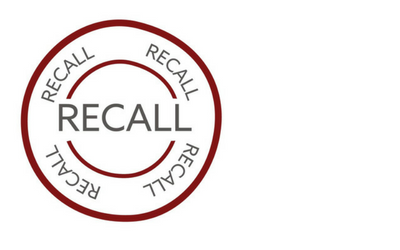
There have been a number of pet food recalls in recent weeks in North America. But just how serious are these recalls that occur from time to time?
In some instances, the recalls are issued by the manufacturer because of dissatisfaction with their product. In these cases, there is typically no risk to your pet.
In other cases, pet food may be voluntarily recalled by the company due to issues they have identified, or by request or order by the US Food & Drug Association (FDA), Health Canada, or by the Australian Competition and Consumer Commission (Product Safety Australia). Often these requests or orders occur after consumer complaints or through routine testing carried out by these agencies.
When a pet food is recalled due to contamination by bacteria such as Salmonella or Listeria, it can be quite serious not only for your pet but also for the people living in your home as well.
What you need to know about Salmonella
Salmonella are bacteria that are normally found in the intestinal tract of many animals, including people. In the pet food manufacturing process, if the source animals are not handled properly, contamination can occur. This is especially true when the pet food is not cooked, as in the preparation of raw food diets; the bacteria can survive the raw food production process and can still be present in the food that is fed to your pet.
Signs of Salmonella infections in pets include diarrhea, bloody diarrhea, fever, vomiting, and lethargy. Some pets may show milder signs such as decreased appetite, fever, and abdominal pain. Additionally, some pets may show no signs at all, but can still pass the infection on to people or other pets in the home. Younger and older animals, as well as pets with weak immune systems are most at risk of developing infections. If your pet has consumed any recalled products and has the above signs, contact your veterinarian.
People can become infected with Salmonella after handling contaminated products, or surfaces exposed to the products, if they have not thoroughly washed their hands. Signs of Salmonella infection in people include nausea, vomiting, diarrhea, bloody diarrhea, abdominal cramping, and fever. Sometimes, Salmonella can cause more serious infections in people, including infection that spreads from the intestine to the bloodstream and then other parts of the body. If a member of your household is showing the above signs and is concerned they may have a Salmonella infection, they should contact their healthcare provider.
Those most at risk of becoming infected are young children; they tend to touch contaminated items and put their hands into their mouths without handwashing. Adults over age 65, pregnant women, and people with weakened immune systems are at a higher risk of developing serious infections.
What you need to know about Listeria
Listeria are bacteria that are found in soil, water, and some animals. This bacteria can also live in food processing plants and contaminate processed foods. Unlike many other bacteria, Listeria can survive refrigeration and even freezing.
Healthy dogs and cats rarely show signs of Listeria infection, but when shown, include vomiting and diarrhea. Sometimes Listeria can cause more serious signs of illness. Signs of a severe infection include fever, weakness, lethargy, muscle soreness, lack of coordination, skin infections, respiratory signs, miscarriage, and even death. If your pet has consumed any recalled products and has the above signs, contact your veterinarian.
People can become infected with Listeria after handling contaminated products, or surfaces exposed to the products, if they have not thoroughly washed their hands. Also, pets can pass Listeria to humans without showing any signs of illness (the bacteria is shed in the pet’s feces). In people, mild Listeria infections can cause fever and diarrhea. In pregnant women, a Listeria infection can lead to miscarriage, premature delivery, stillbirth, or life-threatening infection in the newborn. Adults over age 65 and people with weakened immune systems are at a higher risk of developing serious infections. Listeria can spread through the bloodstream, causing meningitis which can lead to death.
The recent recalls in the United States have been a result of contamination of pet food/treats with Salmonella and Listeria bacteria. Several pets became ill after consuming products contaminated with Salmonella. In addition, two children became ill with Salmonella infection according the US Food & Drug Administration.
To check the list of pet foods that have been recently recalled in the United States, visit the FDAs website (https://www.fda.gov/) and search for “pet food recalls”. To keep up-to-date on recalls in Canada, visit the Government of Canada’s website (https://www.canada.ca/en/services/health.html), and in Australia, visit the Australian Competition & Consumer Commission’s website (https://www.accc.gov.au/consumers ) and search for “pet food recalls”.
If you suspect your pet has become ill from pet food products, a report can be filed with the above listed agencies.
Regardless of whether your pet is fed a raw food diet or not, proper handwashing after handling pet food, treats, and food dishes is important to ensure the health of everyone in your home. Always wash pet food dishes after your pet has eaten. Be aware of the signs of Salmonella and Listeria infections.